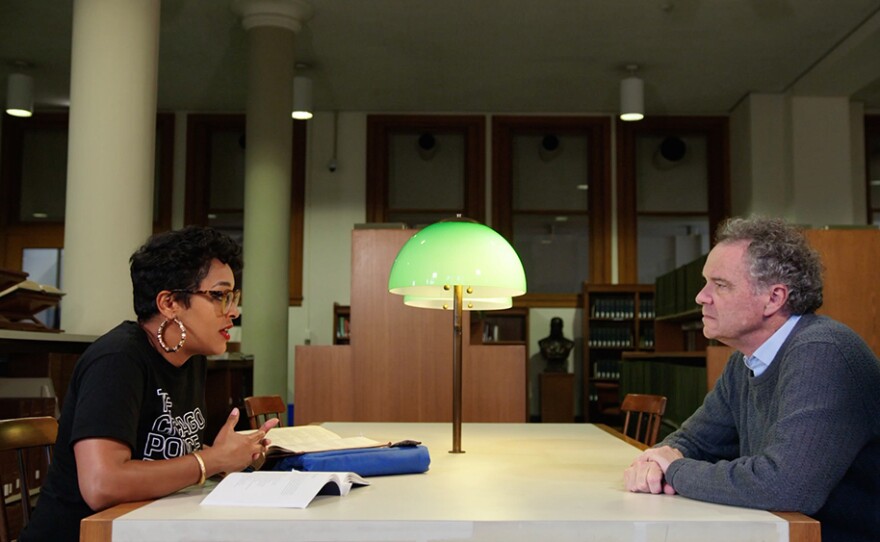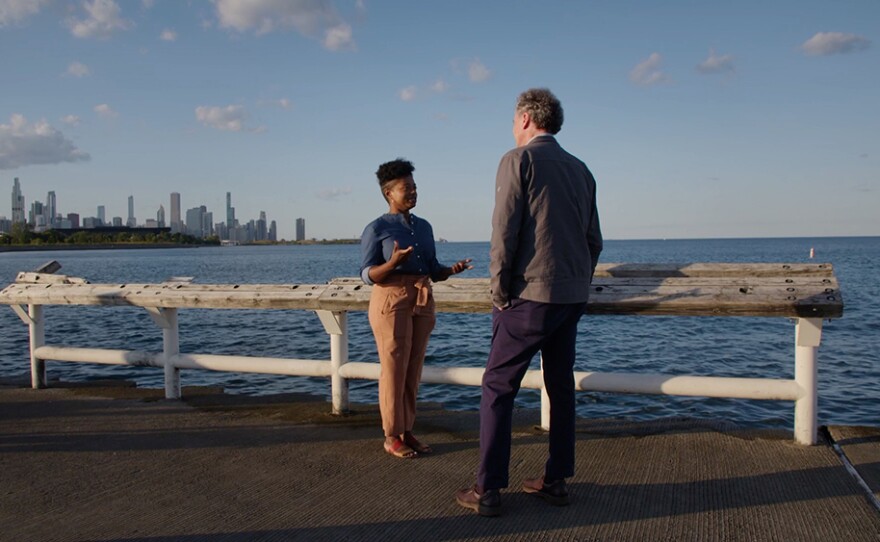Tuesday, Feb. 8, 2022 at 11:30 p.m. on KPBS TV + Thursday, Feb. 10 at 10:30 p.m. on KPBS 2 / Watch Now!
On a hot day in 1919, an attack on African American teenagers near a Chicago beach stoked long-standing tensions between white and black residents. Violence erupted and its aftermath shaped laws, housing, and opportunities for African American citizens for generations. On this episode of THE FUTURE OF AMERICA'S PAST, historian Ed Ayers visits Chicago during the 100th anniversary of what became known as “Red Summer.” He meets a poet, performance artist, museum educator, and young people who are creating living memorials to a long-ignored past.

About The Series:
Historian Ed Ayers takes viewers to the sites of complex events in American history, where he meets people working to preserve the past, from park rangers to curators to community activists. In Season 2 of THE FUTURE OF AMERICA'S PAST, Ed visits the sites of racial violence during Chicago’s “Red Summer” of 1919, and tours the museum that once was Moton High School in Farmville, Virginia, where a 1951 student-led protest catalyzed the Brown v. Board of Education Supreme Court decision. In other episodes, Ed explores the human and environmental costs of the transcontinental railroad, and meets people in Boston and Philadelphia working to preserve overlooked perspectives from the Revolutionary War era.
Episodes are available on demand.
Distributed by American Public Television





